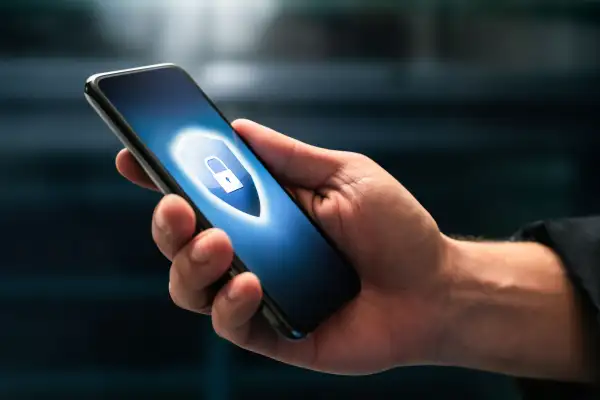Detecting ID Theft — And The 5 Steps You Need To Take Immediately

The Bureau of Justice Statistics (BJS) reported that in 2021, about one in 10 people were victims of identity theft within the previous year. However, there are measures you can take to spot identity thieves early on and mitigate the damage they may cause.
Read on for tips on how to check for identity theft and the main steps you should take if your identity is stolen.
How to check if someone is using my identity
Fraudsters may use your personal information to apply for a new credit card, make unauthorized bank transfers or even undergo medical procedures using your insurance. That's why it's important to carefully examine your statements, bills and credit reports for any discrepancies.
Here’s what you should look out for:
Check your bank statements and credit card bills
Get in the habit of checking your bank statements and credit card bills every month. Go over every transaction and make sure you recognize the vendors and the amount debited from your account. You should also be on the lookout for suspicious withdrawals or transfers.
Review your credit reports
The accounts section of your credit report includes a summary of all your credit accounts, along with their payment history and balances. Look for accounts you don't recognize or unusually high outstanding balances.
Be sure to examine the negative accounts section too. If someone opened a credit card or loan using your name and didn't pay it off, the account might have been sent to a collection agency and will show up here.
You can get a free credit report from each of the main credit bureaus (Experian, Equifax and Transunion) once a week through AnnualCreditReport.com.
Watch out for strange or unexpected mail
Receiving mail or bills you weren't expecting can be a red flag of identity theft. Look out for Social Security documents you didn’t request or monthly bills for loans you never applied for, for example.
Keep track of your tax returns and social security statements
Fraudsters could use your personal information to file a tax return or apply for Social Security benefits. If that happens, you won't be able to file your taxes or get your benefits because your Social Security number will already be in use.
You might also get notices from the Internal Revenue Service (IRS) or the Social Security Administration (SSA) with details you don’t recognize, such as income from an employer you didn’t work for.
Go over your medical statements
Identity thieves can use your name or health insurance information to access medical care, such as prescription drugs or procedures.
If you receive a notification that your health insurance benefits have been used and you haven't been to the doctor lately, contact your insurance provider immediately.
What to do if your identity is stolen
As we spend more time online, protecting our personal and financial information from fraudsters and hackers becomes increasingly difficult. But there are ways to stop scammers in their tracks and lessen the financial impact they can cause.
1. Change your login credentials
It's always a good idea to change the passwords for your online accounts, especially those that contain any banking or personal identifying information.
When updating your login credentials, use strong passwords that are long and include a mix of numbers, letters and symbols. You should also avoid reusing the same password across your accounts.
If you need help creating unique passwords, consider using a password manager. These generate passwords for you and store them in an encrypted database. Most password managers can even be synced with your computer and smartphone, allowing you to access your credentials through several devices.
2. Report the crime to the appropriate authorities
Start by reporting the crime to your local police department and the Federal Trade Commission (FTC) through IdentityTheft.gov. This website will generate a personalized identity theft recovery plan based on the information you provide.
The plan typically includes step-by-step instructions on freezing your credit reports and contacting your creditors, for example. You'll also get access to letters and scripts you can use to dispute fraudulent accounts and charges.
Depending on the type of identity theft you experience — like tax or social security identity theft — you might also have to inform other entities. In this case, your identity theft recovery plan might also include contacting the IRS or the Social Security Administration directly.
3. Freeze your credit report
A credit freeze restricts access to your credit report. This stops creditors and other third parties from accessing your credit report, so unauthorized parties can't take out loans and credit cards in your name.
All three credit reporting agencies let you freeze your credit report online for free. You can do so here:
Keep in mind that a credit freeze also prevents you from opening new credit accounts. So, before applying for a card or loan, make sure to unfreeze your credit file or request a temporary thaw.
4. Dispute any fraudulent accounts
If someone has already opened a credit account using your personal information, you should dispute it with the credit reporting agencies.
The FTC has a sample letter you can fill out with your details and mail over to the bureaus. Along with the letter, make sure to include a copy of the identity theft report you submitted through IdentityTheft.gov and proof of your identity (such as your driver's license).
The bureaus should remove the fraudulent account from your reports and notify the creditor who opened said account.
5. Monitor your credit
If you've been the victim of identity theft, you will have to keep a close eye on your credit report for the foreseeable future.
While you can do it yourself by checking your credit report diligently, there are plenty of excellent credit monitoring services that could make the process easier. These will send you an alert you if someone tries to apply for a new account under your name or if anything changes in your credit report.



